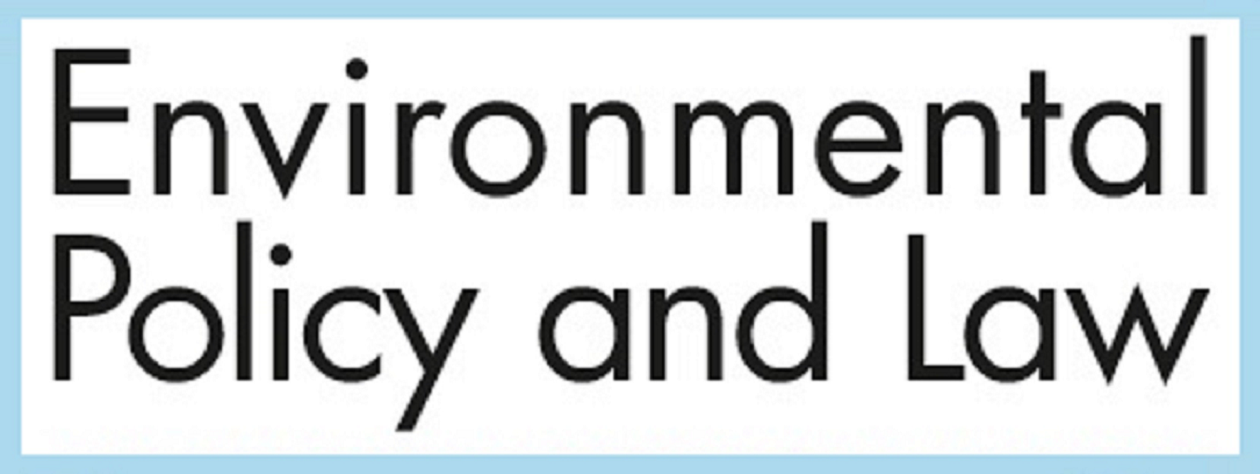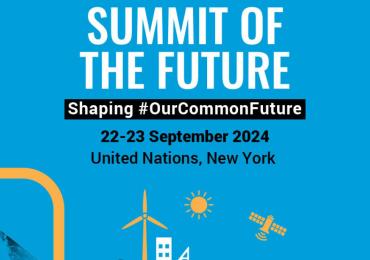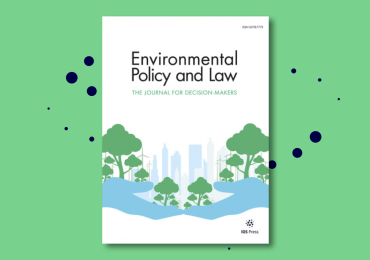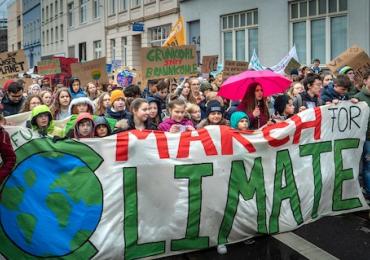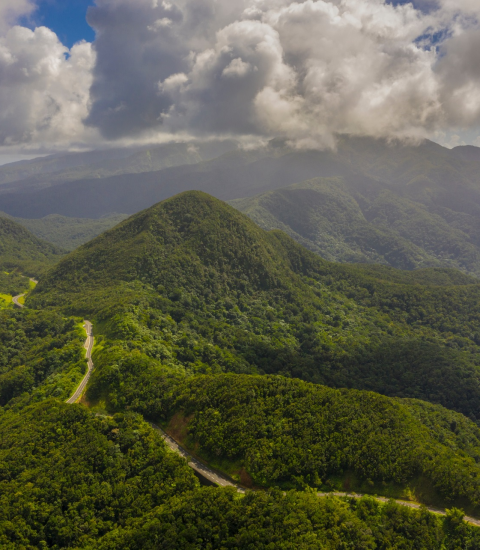
[Author: Carmel McNamara, IOS Press]
Amsterdam, NL – The expertise of EPL’s Editorial Board is expanding, with new members appointed to the journal’s senior team. In a series of posts, we will introduce the new editors. Here, we are very pleased to announce that Bharat H. Desai, PhD, has been promoted to Managing Editor.
Bharat H. Desai, PhD, is Professor of International Law as well as Chairperson of the Centre for International Legal Studies at the School of International Studies of Jawaharlal Nehru University in New Delhi, India. He has a long-standing involvement with EPL, both as a board member and an author. It is with great pleasure to announce that Prof. Desai has now joined the senior team as Managing Editor and he will work alongside other team members to solicit content for regular and thematic/special issues.
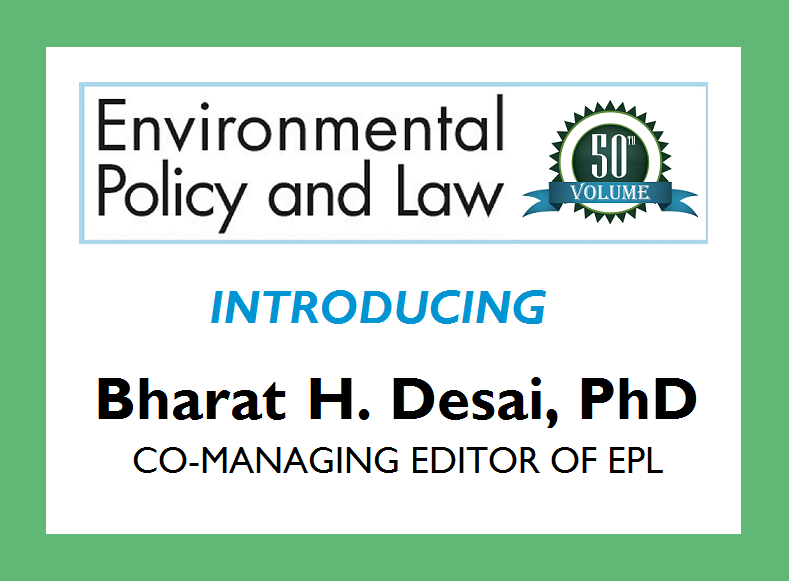
Background
Prof. Desai’s pioneering works published in Environmental Policy and Law include: “The Policy & Law for Combating Climate Change in India,” EPL, Vol.43, Iss.4/5, 238–252 2013; and “UNEP: A Global Environmental Authority?” – published in EPL, Vol.36, Iss.3/4, 137–157, 2006 – the latter being referred to the President of UN General Assembly, as well as to the UN Secretary-General’s High-Level Panel on System-wide Coherence (co-chaired by Prime Ministers of Norway, Pakistan and Mozambique) (read more here).
A selection of other significant authored works include:
- International Environmental Governance: Towards UNEPO? (Boston, USA: Brill/ Nijhoff, June 2014);
- Multilateral Environmental Agreements: Legal Status of the Secretariats (New York, NY: Cambridge University Press, 2010); and
- Implementation of the Convention on Biological Diversity in the Hindu-kush Himalayan Region (Kathmandu: ICIMOD, 2011) (co-authoed with Sharma Oli).
New position
Of his new position on the journal’s board, Prof. Desai explains: “Having been associated with EPL, the founding editor and as contributing author for a long time, it feels natural to connect with EPL as a scholar in the field in this new way. As Managing Editor, it will be a pleasure to enable EPL to contribute to the larger knowledge base in international environmental policy, law and governance."
Curating special issue
In his new role, Prof. Desai’s initial priority is to curate a celebratory special issue to commemorate the 50th volume of the journal. Providing more information about this, he explains: “Outstanding scholars have been invited to contribute a thinking piece for this EPL special issue. A carefully calibrated topic will be taken up by each of the contributors to form part of a mosaic that could provide the best possible scholarly gaze into the future.”
An astounding series of articles have been commissioned on the theme: Pathways to Our Better Common Environmental Future. It will be guided by looking back at the trajectory hitherto followed – especially since the Stockholm Conference in 1972 – and look ahead to find appropriate “pathways” to global regulation of the environment. As EPL celebrates its 50th volume, we are also on way to reach 50th year of the Stockholm Conference in 2022 (Stockholm +50). So, this is perfect timing to probe the future trajectory for our better common environmental future.
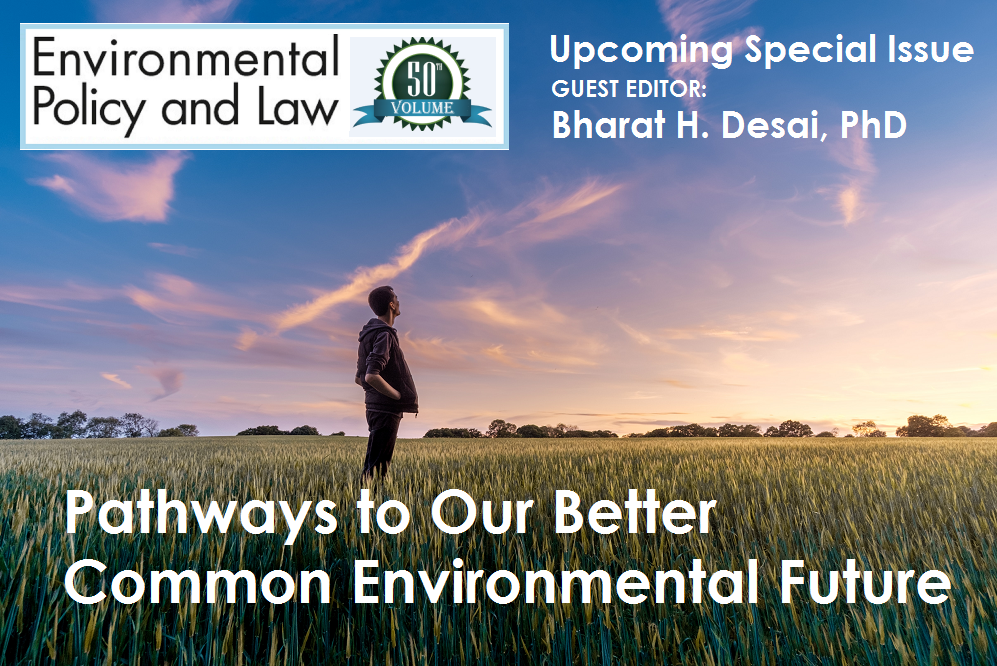
Find out all about the upcoming special issue here
View below an extract Prof. Desai’s article in the new issue of EPL
